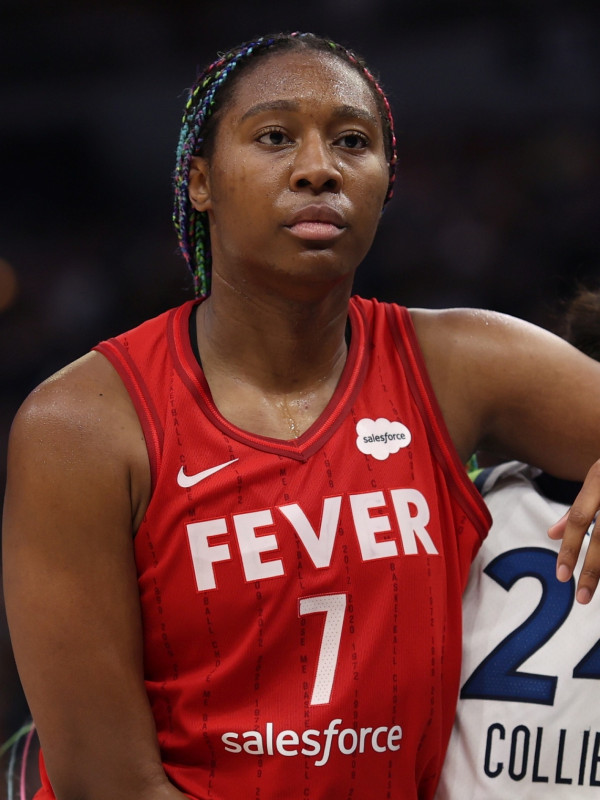FC Barcelona Femení, also known as Barça Femení, is the women's football team of FC Barcelona. They compete in the Liga F, the highest level of Spanish women's football. The team plays its home games at the Johan Cruyff Stadium, and occasionally at Camp Nou or Estadi Olímpic Lluís Companys. It represents the women's section of the well known FC Barcelona.
3 hours ago : Barcelona Women Aim for Champions League Title Against Arsenal in Final Showdown
FC Barcelona Femení will face Arsenal in the Champions League final, seeking a historic treble. Arsenal's coach emphasizes bravery against Barcelona's formidable team in the anticipated match.
November 1970: Proposition to form a team
In November 1970, footballer Immaculada Cabecerán approached the club with the proposition to create a women's team.
November 1970: Formation of Selecció Ciutat de Barcelona
In November 1970, the Selecció Ciutat de Barcelona was formed as the 'embryo' of Barcelona Femení.
1970: Club formation
In 1970, the club was formed with financial and logistical support from FC Barcelona, but without being an official section of the club.
1971: First Matches Against Espanyol
In 1971, Barcelona Femení played their first matches against local rivals Espanyol.
1971: Name change to Peña Femenina Barcelonista
In 1971, the team changed its name from Selecció Ciutat de Barcelona to Peña Femenina Barcelonista.
1973: Catalonia-based league win
In 1973, Penya Femenina Barça won the Catalonia-based league.
1975: Decline of women's football in Spain
By 1975, the initial strength of women's football in Spain was flagging.
February 1977: Call for players
In February 1977, P.F. Barcelona published a call for players in the Revista Barcelonista, suggesting a crisis in lack of players.
September 1977: Absence of women's league in Catalonia
By September 1977, there was no longer a women's league in Catalonia.
1978: Establishment of Catalan women's league
By the 1978–79 season, a Catalan women's league was established again.
1979: Runners-up in cup competition
In the 1978-79 season, P.F. Barcelona Atlético finished as runners-up in a concurrent cup competition after losing the final on penalties.
1980: Formal recognition of women's football
In 1980, the Spanish Football Federation (then FEF, now RFEF) formally recognised women's football.
1982: Núria Llansà as coach
In the 1982–83 season, the team hired former player and advocate Núria Llansà as coach.
January 1983: Lack of fixed training facilities
In January 1983, ahead of the Copa de la Reina, Barcelona did not have fixed training facilities or times.
1983: Name change to Club Femenino/Femení Barcelona
Before the 1983 Copa de la Reina de Fútbol, the team changed its name to Club Femenino/Femení (CF) Barcelona.
1984: Increased interest from FC Barcelona
In 1984, FC Barcelona was thanked for taking a much more sustained interest in women's football, having offered its stadiums and facilities.
1985: First official competition win
In 1985, Barcelona won its first official competition, the Copa Generalitat/Copa Catalana.
1985: Home games at Mini Estadi
Since at least 1985, the team played most home games at the Mini Estadi.
1988: First League Match Against Espanyol
In 1988, the first league match between Barcelona Femení and Espanyol resulted in a 2–2 draw.
1992: Successful run in the league
In 1992, Barcelona began a successful three-year run in the league, placing in the top three.
2000: Integration into Barcelona Foundation
In 2000, Club Femení Barcelona was brought into the Barcelona Foundation's organizational structure, making the women's team part of the club in administration.
2001: Rebranding to Superliga Femenina and exclusion from top division
In 2001, the league was rebranded into the Superliga Femenina, but Barcelona was not accepted into the top division due to financial constraints.
2002: Won group in Segunda División
In 2002 Barcelona won its group in the Segunda División, but remained in the second division after unsuccessful appearances in the promotion playoffs.
2002: Official section of FC Barcelona
In 2002, the team officially became a section of FC Barcelona and took the official name Futbol Club Barcelona.
2002: Incorporation as an official section
In the summer of 2002, the FC Barcelona board unanimously approved incorporating CF Barcelona as an official section, rebranding the women's section to Futbol Club Barcelona Femení.
2003: Won group in Segunda División
In 2003 Barcelona won its group in the Segunda División, but remained in the second division after unsuccessful appearances in the promotion playoffs.
2004: Promotion to Superliga Femenina
In 2004, Barcelona was eventually promoted to the Superliga Femenina.
2006: Llorens Restructures the Women's Section
In 2006, Llorens was appointed to restructure the FC Barcelona Femení section, which was considered weak at the time.
2006: Hiring of Xavi Llorens as manager
In 2006, Xavi Llorens was hired as manager to replace Natalia Astrain, following a restructuring and reduction of the women's section.
2009: Consolidation in top positions
Between 2009 and 2011, Barcelona consolidated themselves in top positions in the league table.
2011: Copa de la Reina win
In 2011, Barcelona won their second Copa de la Reina, beating Espanyol 1–0 in the final.
2012: League Title Win at San Mamés
In the 2012–13 season, Barcelona were at one stage 8 points behind Athletic before winning the league on the last day at San Mamés.
2013: Domestic double
In 2013, Barcelona successfully defended the league and won the Copa de la Reina to achieve the domestic double.
2013: Champions League Quarterfinals
In the 2013–14 edition, Barcelona qualified for the quarterfinals of the Women's Champions League for the first time.
2014: Sponsorship deal with Stanley Tools
In 2014, the team made a sponsorship deal with Stanley Tools, allowing them to become professional.
2015: Four straight league titles
In the 2014–15 season, Barcelona became the first team in the Spanish women's league to win four straight league titles.
2015: Professionalisation of the women's section
In the summer of 2015, the club made the decision to professionalise the women's section and brought in Markel Zubizarreta as women's team manager.
2016: Atlético Madrid emerging as a strong side
Around 2016, Atlético Madrid Femenino began to emerge as a strong side, developing a rivalry with Barcelona.
2016: Rakuten sponsorship
In 2016, Rakuten sponsored the men's team's shirts, but the women's team was not included in the deal.
2016: Greater priority on Champions League
In 2016, as part of their new professionalism, Barcelona placed a greater priority on competing in the Champions League and they reached their first Champions League semifinal in the 2016–17 season.
2017: Copa de la Reina Victory and Shift in Focus
In 2017, Barcelona beat Atlético in the Copa de la Reina final, marking Llorens' last match as coach. Fran Sánchez replaced Llorens, and Zubizarreta became sporting director. The team shifted from youth development to signing international stars like Toni Duggan and Lieke Martens.
2018: Atlético Madrid league titles
Between the 2016–17 and 2018–19 seasons, Atlético Madrid won the league titles.
2018: Shirt deal with Stanley
In 2018, Stanley became the first shirt sponsor specific to the women's team.
2018: Pre-season Tour with Men's Team
In the summer of 2018, Barcelona Femení joined the men's team on a pre-season tour for the first time, which was seen as a move to increase commercial opportunities and promote equality in women's football.
2018: Incorporation of Women's Sections
Prior to 2018 most large clubs (i.e. those with historic men's teams) did not incorporate women's sections.
January 2019: Lluís Cortés Replaces Sánchez
In January 2019, Lluís Cortés replaced Sánchez as the coach of Barcelona Femení.
March 2019: World Record Attendance
On March 17, 2019, Barcelona defeated Atlético at the Wanda Metropolitano in a match that set a new world record for attendance at a women's club football match, with 60,739 attendees.
2019: Move to Johan Cruyff Stadium
In 2019, Barcelona Femení moved to the Johan Cruyff Stadium in Sant Joan Despí.
2019: Runners-up in all competitions
In 2019, Barcelona was runners-up in all competitions and the club considered not reaching the final of the 2019–20 Champions League disappointing.
2020: Real Madrid Incorporates Women's Section
In 2020, Real Madrid incorporated a women's section, leading to initial dismissal of a rivalry by Losada.
2020: Alexia Putellas Sweeps Awards
In 2020, captain Alexia Putellas started to sweep all individual awards for two seasons.
2020: Four Titles Won
In the 2019-2020 season, Barcelona won four titles but did not reach the Champions League final, which the club considered disappointing.
2021: Champions League Title and Manager's Departure
In 2021, Barcelona defeated Chelsea 4–0 to win their first Champions League title. A month later, coach Cortés left the team.
2021: Champions League Win
In 2021, Barcelona won the Champions League, becoming the first Spanish women's team to complete a continental treble.
2021: Alexia Putellas Sweeps Awards
In 2021, captain Alexia Putellas continued to sweep all individual awards for two seasons.
2021: Supercopa Victory and League Dominance
In the 2021-22 season, Barcelona defeated Atlético 7–0 in the Supercopa final and mathematically won the league by March.
2022: Increased Crowds and Equal Treatment
By 2022, Barcelona Femení's average crowds were four times larger than when they played at the Mini Estadi, attributed to equal treatment in advertising and merchandising.
2022: Record Attendance
In 2022 Barcelona Femení successively broke the official world record attendance twice.
2022: Record-Breaking Attendance and Transfer
In 2022, Barcelona broke the attendance record twice, beating Real Madrid and Wolfsburg at Camp Nou. They also broke the world record for a transfer fee in women's football to bring Keira Walsh from Manchester City.
2024: Barcelona Wins Every Women's Clásico
As of 2024, Barcelona has won every women's Clásico against Real Madrid.
2024: Importance of Stronger Real Madrid
By 2024, despite Barcelona's consistent victories over Real Madrid, staff and players emphasized the importance of a stronger Real Madrid for the league's competitive status and global image.
2024: Continental Quadruple
In 2024, Barcelona completed their first continental quadruple by defeating Lyon 2–0 in the Champions League final.
2024: Champions League Win
In 2024, Barcelona won its third Champions League, becoming the first Spanish women's team to complete a continental quadruple.
2024: Team Plays for People "who have become hooked on [their] way of playing and understanding football"
In 2024, El Periódico wrote that the team plays for people "who have become hooked on [their] way of playing and understanding football".
2024: Prevailing Sense of Identity
In 2024, the success of Barcelona Femení was considered by local sportswriters and the FC Barcelona club historian to be the prevailing sense of identity and club narrative for FC Barcelona.
Mentioned in this timeline
FC Barcelona also known as Bar a is a professional...

Football is a family of team sports centered around kicking...
The Guardian is a British daily newspaper founded in as...

Barcelona is a major city located on the northeastern coast...
Spain officially the Kingdom of Spain is a country located...

Rakuten Group Inc headquartered in Tokyo is a prominent Japanese...
Trending

30 minutes ago Michael King Scratched from Padres Game Against Braves Due to Shoulder Injury
1 month ago Belize: Skinny Water Charters, Company Registration, and Rosario Development Protest.

1 hour ago Fever secure win; Caitlin Clark's three-point streak ends; Boston shines in game.
2 hours ago Stefanski Praises Sanders; Browns QB Competition Remains United, Not Dysfunctional This Offseason.
2 hours ago Natasha Cloud Joins Liberty, Aims to Elevate WNBA and Championship Hopes.

2 hours ago Matthew Broderick Joins Tribeca Festival 2025 Jury Alongside MacLachlan, Glazer, and Whitehead.
Popular

Jupiter the fifth planet from the Sun is the Solar...

Cristiano Ronaldo often nicknamed CR is a highly decorated Portuguese...

Steve Irwin the Crocodile Hunter was an influential Australian zookeeper...

LeBron James nicknamed King James is a professional basketball player...

Kash Patel is an American lawyer and former federal prosecutor...

Pope Francis is the current head of the Catholic Church...